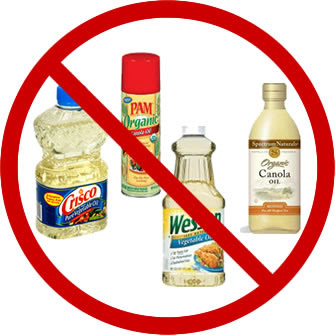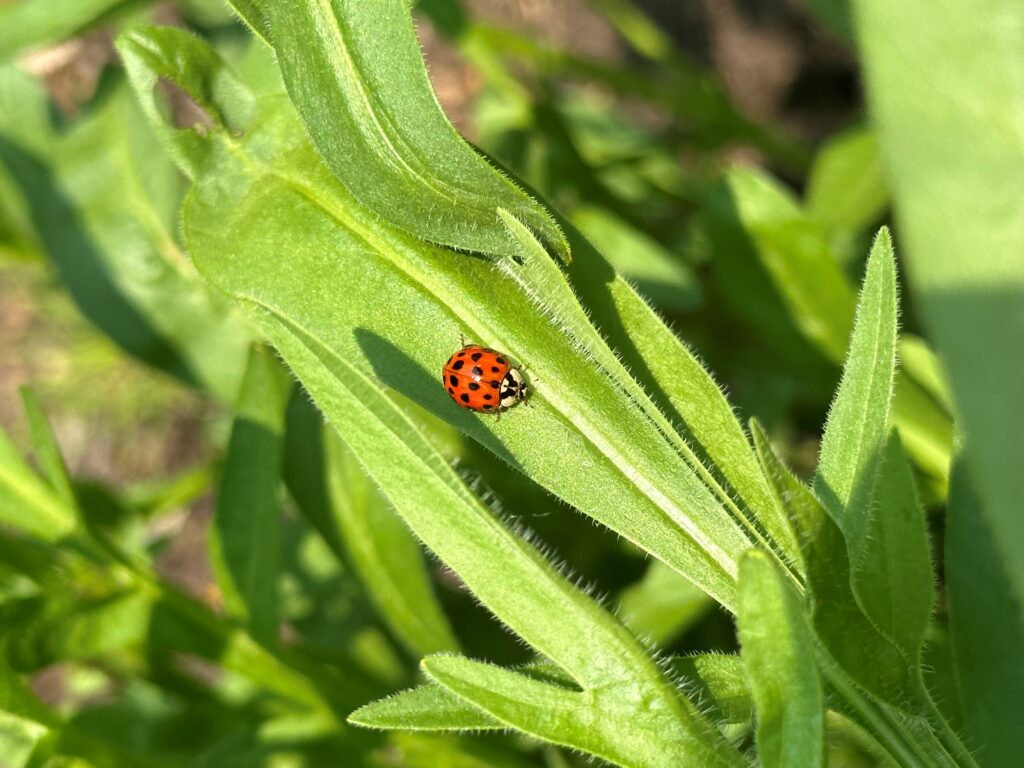If you only read and absorb two sentences here, make it these two: PLEASE STOP THINKING REFINED SEED AND VEGETABLE OILS ARE HEALTHY. THEY’RE REALLY *NOT*; AS A MATTER OF FACT, THEY’RE HARMFUL AT THE RATES WE’RE CONSUMING THEM. Let me call them out right up front: soybean, canola (a.k.a. rapeseed), corn, cottonseed, sunflower, safflower, grapeseed, peanut; anything calling itself “vegetable oil,” margarine or other butter-like spreads. This may not be news to you. If it is, though, or you keep finding yourself hypnotized by the “healthy” marketing BS that accompanies these products, keep reading.
A well-cited editorial in the British Medical Journal (“BMJ”) from March of 2014 spells out a lot of the evidence. I don’t want to go too science-geek on you with this, so I’m going to attempt to share a few of the reasons in a way that will hopefully keep your eyes from glazing over (but I’ll include citations so you can explore more deeply if you’d like).
Fact # 1: “Vegetable” and Seed Oils are High in Omega-6 Fatty Acids
Our bodies *need* omega-6 fatty acids, and cannot produce them on their own. Why, then, would consuming omega-6 be a problem? In short, it’s the old “too much of a good thing” conundrum. The presence of omega-6 competes in the cells with omega-3, also an essential fatty acid that our bodies can’t produce on their own. We should be after a ratio of omega-6 to omega-3 of less than 4:1. Estimates of the ratio in the western diet are now at least 15:1; by some estimates, in the U.S., it may be as high at 25:1 for some people. Processed foods are *full* of it, which is a big part of the problem. You can get omega 6’s naturally from seeds (e.g. sunflower or pumpkin); certain nuts (pistachios – yay! – and pine nuts, a.k.a. pignolis); acai berries. You should probably stop there.
This out-of-whack ratio is bad news. According to a 2002 abstract on the website for the National Center for Biotechnology Information, too-high omega-6 to omega-3 ratios “promote the pathogenesis of many diseases, including cardiovascular disease, cancer, and inflammatory and autoimmune diseases.” To get more specific, various studies have linked high ratios to (thanks to this article on paleoleap.com for this list and citations):
- Cognitive decline (Alzheimer’s, dementia, etc.)
- Breast cancer
- Cardiovascular disease (although recent trials have put a damper on the initial enthusiasm, there still is a link; it’s just not as big as researchers initially thought)
- Depression and other mood disorders
- Gut problems and gut flora dysfunction
- Insulin resistance and diabetes
- Obesity
- Arthritis
As far as I’m concerned (maybe you, too, at this point), just the above info is enough to put me completely off these oils. If you want to come with me as I pile on, though, keep reading.
Fact # 2: Most Vegetable and Seed Oils Marketed as “Healthy” are Heavily Industrially Processed
Did you know: “Crisco” was the catchy name they came up with for “crystallized cottonseed oil” when it was first created? (Because in the late 1800’s Procter & Gamble, who’d been using cottonseed oil in the manufacture of candles and soap, discovered they could partially hydrogenate the oil and it resembled lard. *Resembled* lard. Let that sink in for just a second. An oil from the seeds of a plant that we would never consider to be a food source – cotton – was something that resembled lard. What the heck? Why not try it out in cooking?!?) So P&G tested this product, which resembled lard, and found that it worked in the kitchen, and decided to market it as a lard replacement. Good. Lord.
Now that it’s pretty common knowledge that hydrogenated oils should be avoided, we’ve shifted to liquid oils. But while oils like olive, coconut, and avocado can be fairly easily produced by cold-pressing the seeds of the fruits/nuts they come from, the process to extract the oils from, for example, rapeseeds (i.e. refining), borders on the nearly mind-numbing (with attribution and thanks to this piece on thankyourbody.com for this edgy if admittedly over-simplified description):
“Step 1: Find some “canola seeds.” Oh wait, they don’t exist. Canola oil is actually made from a hybrid version of the rapeseed… most likely genetically modified and heavily treated with pesticides.
Step 2: Heat the rapeseeds at unnaturally high temperatures so that they oxidize and are rancid before you ever buy them.
Step 3: Process with a petroleum solvent to extract the oils.
Step 4: Heat some more and add some acid to remove any nasty wax solids that formed during the first processing.
Step 5: Treat the oil with more chemicals to improve the color.
Step 6: Deodorize the oil to mask the horrific smell from the chemical processing.”
I could stop there, but, one more, to help to hopefully drive the nail into the vegetable and seed oil coffin for you.
Fact # 3: Industrially Processed (“Refined”) Vegetable and Seed Oils are Chemically Unstable and Easily Oxidized
To me, this might actually be the scariest one.
Not only are these oils likely compromised during production (as noted above in “Step 2”), exposing them to air, light, and heat adds insult to injury. This happens because of the molecular structure of these “polyunsaturated” oils. Why does oxidation matter? Oxidation, like omega-6 fatty acids, is essential in the body. Oxidation creates free radicals, which, when limited to what is needed by the body to turn food into energy, is fine. Too many free radicals roaming around in the body, though, is not a good thing. This article does an amazing job of describing why, so I’m going to steal some of it for you here (emphasis added by me): “once free radicals are formed, a chain reaction can occur. The first free radical pulls an electron from a molecule, which destabilizes the molecule and turns *it* into a free radical. That molecule then takes an electron from another molecule, destabilizing *it* and turning *it* into a free radical. This domino effect can eventually disrupt and damage the whole cell.
“The free radical chain reaction may lead to broken cell membranes, which can alter what enters and exits the cell, according to the Harvard School of Public Health. The chain reaction may change the structure of a lipid, making it more likely to become trapped in an artery. The damaged molecules may mutate and grow tumors. Or, the cascading damage may change DNA code.”
Still gonna hang onto that bottle of Wesson or canola oil? If yes, I hope you move it out to the garage with the WD-40.




2 Comments
Great information Marcia! I would love to hear more about eating well and it’s impact on health. I like to think I am knowledgeable but always willing to learn. I hope you are well.
Hi Mike!! Thank you so much – I am happy to keep it coming!! Even as I’m writing these, *I’m* learning things, too!